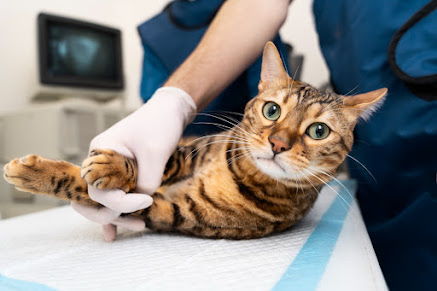A Comprehensive Guide to Feeding Your Rabbit for Optimal Health and Happiness
Understanding the dietary needs of your pet rabbit is crucial for their overall well-being. While it may be tempting to indulge them with treats and processed food, it's essential to recognize that what rabbits want to eat and what they should eat are not always the same. Due to their sensitive digestive systems, it's vital to provide them with a balanced and appropriate diet. This article will delve into the specifics of rabbit nutrition, covering the significance of fiber, the role of hay, the importance of vegetables, guidelines for feeding pellets, and tips for choosing healthy treats. By following these recommendations, you can ensure your furry friend's health and happiness.
The Importance of Fiber in a Rabbit's Diet:
A rabbit's digestive system relies heavily on fiber for proper functioning. Fresh grass hay, such as timothy or oat hay, should constitute a significant portion of your rabbit's diet. This type of hay stimulates intestinal function effectively compared to finely ground fiber found in pellets. While pellets can be included to balance the diet, they should not be the primary source of nutrition, as an excessive intake may lead to obesity and digestive issues. It's crucial to limit the number of pellets, especially for overweight rabbits, and compensate with a diverse selection of fresh vegetables and unlimited access to hay.
Feeding Rabbits Hay:
Hay should be available to your rabbit at all times. Initially, some rabbits may not consume much hay, but by offering fresh hay a few times a day and reducing pellet intake, your rabbit will likely develop an appetite for hay. For young rabbits, primarily provide alfalfa hay for its calcium content, gradually transitioning to timothy, oat hay, or botanical hay as they grow.
Incorporating Vegetables in a Rabbit's Diet:
Vegetables should constitute a substantial portion of your rabbit's diet to ensure a well-balanced nutritional intake. It's crucial to provide a variety of vegetables daily. Suitable options include carrots, carrot tops, parsley, broccoli, collard greens, mustard greens, dandelion greens, turnip greens, endive, romaine lettuce, kale, and spinach. However, be cautious with kale, spinach, and mustard greens, as they are high in oxalates, which can lead to bladder stone formation if overconsumed. Avoid feeding beans, cauliflower, cabbage, potatoes, and iceberg lettuce, as they can cause digestive problems or lack significant nutritional value.
Introducing Vegetables to Young Rabbits:
For rabbits aged 12 weeks or older, introduce vegetables gradually, starting with small quantities and one vegetable at a time. As you add more vegetables to their diet, reduce the amount of pellets and monitor their stool for signs of diarrhea. If diarrhea occurs, discontinue the most recently added vegetable and consult a veterinarian if necessary.
Understanding Rabbit Pellets:
Pellets are designed primarily for commercial rabbit production and are high in calories. If fed excessively, they can lead to obesity and related health problems. While pellets provide essential nutrients, it's recommended to limit their intake and instead focus on fresh vegetables and grass hays. When selecting pellets, opt for a fresh, high-quality brand that contains a minimum of 20-25% fiber, around 14% protein (no animal protein), and less than 1% calcium for most house rabbits (spayed/neutered). Adjust the amount of pellets according to your rabbit's weight, ensuring a carefully regulated intake.
Guidelines for Feeding Pellets:
To provide a general guideline for pellet portion sizes, consider the following recommendations: For rabbits weighing 5 to 7 lbs., provide approximately 1/4 cup of pellets. For rabbits weighing 8 to 10 lbs., offer 1/2 cup of pellets, and for rabbits weighing 11 to 15 lbs., provide 3/4 cup. Baby rabbits can have pellets available free choice initially and gradually decrease to 1/2 cup per 6 lbs. of body weight by around 6 months of age.
Selecting Healthy Treats for Your Rabbit:
While it may be tempting to offer various treats to your rabbit, it's essential to choose wisely. The House Rabbit Society recommends feeding mature adult rabbits (1 to 5 years) approximately 2 tablespoons of fresh fruit daily as a treat. Be cautious of pet store treats marketed for rabbits, as they may contain excessive carbohydrates or sugar, leading to digestive problems. Instead, consider offering twigs from apple or willow trees (ensuring they are pesticide-free) or other rabbit-safe woods as an alternative to food treats.
Conclusion:
Feeding your rabbit a well-balanced diet is crucial for their health and happiness. By prioritizing fiber-rich hay, incorporating a variety of vegetables, and regulating pellet intake, you can ensure optimal nutrition and digestive function. Additionally, selecting healthy treats and introducing them in moderation will keep your rabbit satisfied without compromising their well-being. Remember, understanding your rabbit's dietary needs and providing them with appropriate nutrition is the key to fostering a long and joyful companionship.






